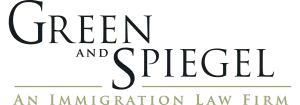- within Immigration topic(s)
- in United States
- in United States
- with readers working within the Retail & Leisure industries
On Friday, President Trump issued a Proclamation that added a $100,000 fee for H-1B petitions. We are sharing what we know so far, and will update over the weekend in this evolving situation. The Proclamation was accompanied by a short "fact sheet" that did little to explain how the Proclamation would be implemented. We also understand that CBP, DOS and USCIS officers were not given advance notice, guidance or training. This Proclamation will be challenged in court quickly.
More details are below, but for now we recommend that:
- Any H-1B holder who is now outside the U.S. can try to come back before midnight Sunday morning when the Proclamation takes effect. We realize this will be disruptive or impossible for some. If you do not come back to the U.S. today, please do not plan to travel Sunday or early next week until we have more guidance.
- Any H-1B holder who had planned to travel in the next few days contact your legal team to make a plan.
- For others, there is too much uncertainty to cancel future travel etc. We suggest waiting to make or change plans until next week when we will have an opportunity to discuss with the agencies involved, and see the effect of lawsuits that are almost certainly coming this weekend.
H-1B provisions
The H-1B provisions are the heart of the Proclamation, and call for an additional $100,000 fee for H-1B petitions.
It is not clear how this will be implemented – USCIS has a process for updating filing fees – either by a law passed by Congress, or by regulation. This has not been done by Proclamation before, and that will certainly be challenged.
The Proclamation relies on Section 212(f) of the Immigration and Nationality Act, which the administration has been using regularly, including for the travel ban from certain countries. INA 212(f) has not been used in this way – to restrict entry for people based on how their petition was filed with USCIS. That will also be challenged.
Although the Proclamation and Fact Sheet are not clearly written, it does appear that petitions for extensions, amendments, or changes of employer within the U.S. appear unaffected. We are not sure how and when USCIS will try to implement the $100,000 filing fee for new H-1B petitions.
The Proclamation states that it is based on alleged examples of abuse of the H-1B program. Every new H-1B filed includes a $500 anti-fraud fee, and USCIS can and does conduct site visits. There are already resources to address any fraud in the system. This Proclamation creates fear and uncertainty for the hundreds of thousands of people who are using the H-1B program properly at nonprofits, schools, universities, hospitals and companies. This Proclamation seems clearly timed to affect those who won the H-1B "lottery" this year, and would be entering the U.S. for the first time for an October 1 start date. For them, we recommend either coming to the U.S. today, or waiting for further updates.
The Proclamation has an exception for those whose work is determined to be "within the national interest." There is no guidance on this – in addition to litigation, we expect different industries and trade associations to be pushing for blanket national interest exceptions.
For now, the immediate concern is travel – will people with H-1Bs be able to enter the U.S. based on a petition filed without the $100,000 fee. Again, we recommend a watch and wait approach now, so attorneys can focus on the people who had planned travel in the next few days.
The Proclamation also importantly sets out an agenda for future limits to the H-1B program. It will be very important to follow these, and comment actively:
- By spring 2026, the Secretary of State, the Attorney General, the Secretary of Labor, and the Secretary of Homeland Secretary should submit a recommendation about extending the Proclamation.
- The Secretary of State will issue guidance about the "misuse" of B visas.
- The Secretary of Labor will revise the prevailing wage levels and prioritize the admission of high-paid workers.
The content of this article is intended to provide a general guide to the subject matter. Specialist advice should be sought about your specific circumstances.



